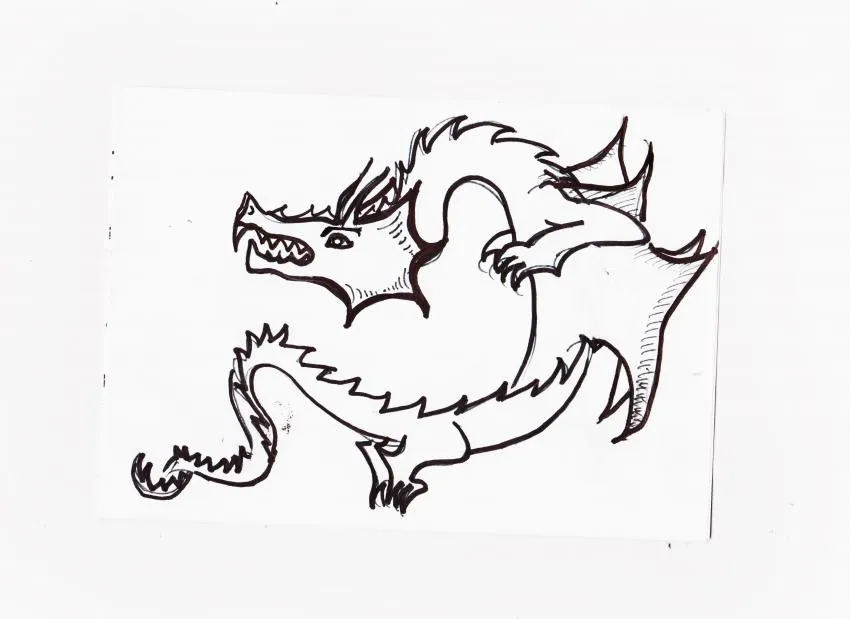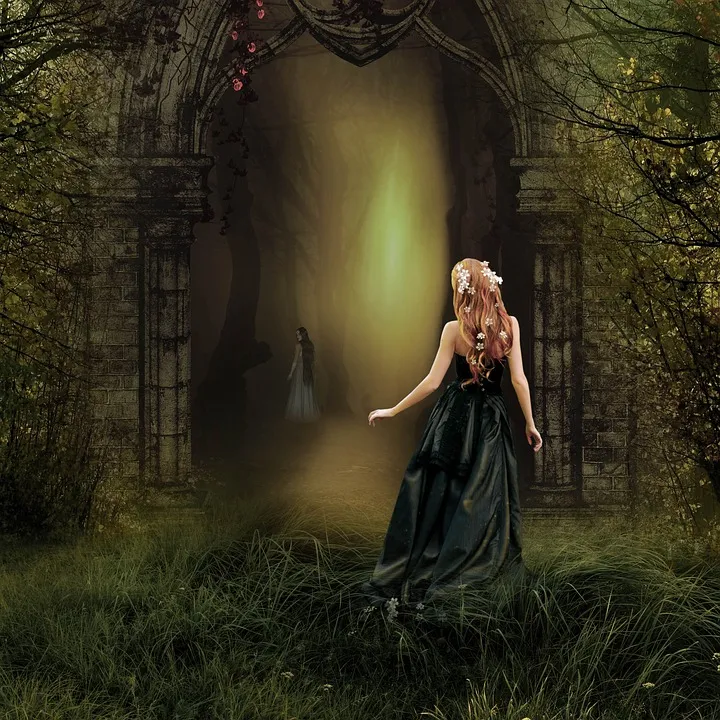Why Was The Lord Of The Rings Such Phenomenal Success Despite J.R.R. Tolkien's "Unprofessional" Writing?

I love the Lord of the Rings, but, as one of my friends said, it’s hard not to fall asleep in the first several chapters of the book. There’s hardly any action.
There’s hardly any suspense, hardly any narrative hooks, hardly any dynamism — as if the author wants you to linger on every word rather than speed on to the next one. As if he wants you to pause, to savor every sentence on your tongue rather than get curious about what’s going to happen next.
Like Treebeard, he takes a long time to say whatever he wants to say.
You must understand, young Hobbit, it takes a long time to say anything in Old Entish. And we never say anything unless it is worth taking a long time to say.
Even without knowing the Old Entish, I didn’t fall asleep while lingering through the long descriptions of the hobbit lore, Shire time-keeping, and smoking of the longbottom leaf. Nor did I fall asleep as the company stumbled along through the brier and bramble on the way to the Old Forest.
Of course, very little was happening for quite a stretch of the story. They were just plodding along. Sunrise, sunset. Was it unprofessional writing or was it intentional? Why do people continue reading even though so much of the plot breaks the rules of “good writing”?
Tolkien didn’t seem to care whether we read on or not. He didn’t care about narrative hooks, catchy titles, shorter sentences, or simpler words. No modern writer would have dared to write this way. Unless… they knew a thing or two about human nature.
What did the critics say about the Lord of the Rings?
The literary establishment in England was stunned… when a major bookstore chain polled English-speaking readers on which book of the twentieth century they considered the greatest. The Lord of the Rings won by a large margin. Three times the poll was broadened: to a worldwide readership, into cyberspace via Amazon.com, and even to “the greatest book of the millennium.” The same champion won each time. The critics retched and kvetched, wailed and flailed, gasped, and grasped for explanations. One said that they had failed and wasted their work on “education.” “Why bother teaching them to read if they’re going to read that?” Peter Kreeft, The Philosophy of Tolkien: The Worldview Behind The Lord of the Rings.
Why were the critics of The Lord of the Rings so adamant? Because Tolkien broke pretty much all the rules of “professional writing” and got away with it. He didn’t use any literary tricks or devices to draw the reader in. He did something entirely different, and it caught the readers’ attention more than any narrative hooks.
What inspired Tolkien to create the Middle Earth?

As Tolkien himself puts it, the whole legendarium started when he first came across a strangely-sounding name of Earendel in one of the Old-Saxon poems. Upon reading the first few lines, he felt:
“a curious thrill, as if something had stirred in me, half wakened from sleep. There was something very remote and strange and beautiful behind those words.”
In a letter to Mr. Rang, Tolkien explains that it was the sound of this name that enchanted him. This sound was enough to plant in him the desire to create myths around this name.
For Tolkien, the name is the primary reality. The story — or what happened — is secondary. The main question is “Who?”, not “What?” What happens is always secondary to who it happens to.
The Hobbit was conceived in much the same way when Tolkien mindlessly scribbled on a piece of paper: “In the hole underground, there lived a hobbit.” The subsequent story was the elaboration on that name. The primary reality is “Who,” not “What.”
The name was for Tolkien “the primary world”
“What’s in a name?” Everything. By naming something or someone, we invoke the invisible reality that this name points to.
For Tolkien, the name is the ultimate mystery of who we are and what we are capable of. The name is for him “the primary world.” Everything else flows out of it. The reason Tolkien’s writing is so appealing is that WE ALL WANT TO KNOW WHO WE ARE!
We want to be called, summoned, and rise to our calling, so that our true nature, our truest self may be revealed. Only then we will be fulfilled.
Let me illustrate how Tolkien’s stories are woven around names and why it resonates with us so deeply.
Why did Gandalf choose Bilbo Baggins to be the Burglar?

Why did Gandalf choose Bilbo Baggins, an ordinary adventure-hating, self-indulgent hobbit, to be the burglar? The answer is truly stunning and is given by the wizard himself:
If I say he is a Burglar, a Burglar he is, or will be when the time comes. There is a lot more in him than you guess, and a deal more than he has any idea of himself.
Gandalf SAW something in Bilbo that Bilbo didn’t know about himself. He “saw” his true name, his adventurous nature, and his courage. And so he named him Burglar.
Throughout the journey, Bilbo slowly discovers his true name when, in the midst of trials and tribulations, he suddenly finds himself capable of doing incredible things for his friends.
Finally, when he gets to Smaug’s lair, he fully believes in his own transformation as he tells the dragon his real name:
I am the clue-finder, the web-cutter, the stinging fly. I was chosen for the lucky number. I am he that buries his friends alive and drowns them and draws them alive again from the water. I came from the end of a bag, but no bag went over me. I am the friend of bears and the guest of eagles. I am Ringwinner and Luckwearer; and I am Barrel-rider.”
Gandalf knew all along he was all that even before calling him to join the company. By giving him the name of Burglar at the beginning of the journey, he set him on a course to discover who he really was.
The deepest longing of every human heart is to know who you really are. When someone sees who I really am and calls me by that name, I grow wings and fly.
Why was Frodo so special? Because his name is Frodo of the Nine Fingers
Little did Frodo know who he really was when he first set out of the Shire. All he knew is that he was a little hobbit, and hobbits don’t meddle in the affairs of the Big Folk and Wizards.
Well, he did. He was special, and he was chosen to be the One who would carry the Ring all the way to Mount Doom. No one else in the entire Middle-Earth could do it.
This task is appointed for you, Frodo; and that if you do not find a way, no one will. Galadriel.
Frodo’s journey led him to discover that he was the only one in the entire Middle-Earth who could carry the Ring to Mordor. No one else was strong enough for the task.
He was the only one who could do it — by sacrificing his own flesh. His new name, Frodo of Nine Fingers, was put in a song by a minstrel of Gondor:
A minstrel of Gondor stood forth… and behold! he said:
‘Lo! lords and knights and men of valour… now listen to my lay. For I will sing to you of Frodo of the Nine Fingers and the Ring of Doom.’
What does it mean that Gandalf the Grey turns to Gandalf the White?
Gandalf the Grey didn’t expect that his death in Moria would lead to his transformation into Gandalf the White. He just embraced his calling. He was sent to Middle-Earth for a mission, but he wasn’t told if he had enough power to carry it out.
There are many powers in this world, for good or for evil. Some are greater than I am. And against some, I have not yet been tested.
Gandalf goes into Moria knowing full well what enemy he might have to face. A Balrog, a powerful demon of the ancient world. Yet, he goes in anyway… just to discover on the other side of death that he had a different name. Gandalf the White.
And Gandalf the White can barely remember his old name:
Gandalf? Yes… that was what they used to call me. Gandalf the Gray. That was my name… I am Gandalf the White.
He was sent back at the turn of the tide with a new name and new power.
Other characters of the Lord of the Ring who were transformed by their true names
Aragorn went a whole way from Strider to Healer and King.
Sam, the Gardener, became Samwise the Brave.
Faramir changed from being “the rejected one” to “a loved one.”
Eowyn’s name was changed from “alone and hopeless” to “the Sun Shone on Her.”
The list goes on and on.
What is your name?
The sound of your name is the sweetest sound in the entire world because it tells you who you are. It wakes you up from sleep. It gives you a “curious thrill as if something stirs in you. There is something very remote and strange and beautiful behind it.”
The most important question is “Who?”, not “What?”. Everything else flows out of it.
What is written on Tolkien’s grave?
Tolkien and his wife Edith are buried side by side, and their shared gravestone says Beren and Luthien, as per Tolkien’s instruction.
Tolkien saw himself as Beren and his wife as Luthien. His whole life was the incarnation and overflowing of this name. This name stirred something in him and made him alive. It woke him from sleep. It gave him meaning and hope.
We can only guess why the name of Beren was so meaningful for him. He called the romance between Beren and the elf-maiden Luthien “the kernel of the mythology.”
Most likely, Tolkien saw his life as an echo of Beren’s quest — paying the ultimate price for acquiring the ultimate beauty.
This name was his primary reality and a source of inspiration. “What’s in a name?” Everything.
Tolkien’s writing was the overflow of his name. That’s what makes it so special.

Opinions and Perspectives
Understanding the importance of names adds a whole new dimension to my appreciation of the books.
Maybe what makes it work is that he wrote it for love of the story, not for commercial success.
Each time I reread it I notice new layers of meaning. Thats the mark of truly great writing.
His world-building might be slow but its so rich and detailed that it feels absolutely real.
Hard to believe critics dismissed it so thoroughly. Really shows how out of touch they were.
The connection between names and identity throughout the books is really profound when you think about it.
Its like he knew the rules well enough to know exactly which ones to break.
Kind of amazing how one authors dedication to his vision created something so uniquely powerful.
I find it remarkable how he created something so enduring by ignoring all the rules of good writing.
Reading about the critics reaction makes me laugh. They completely missed what makes these books timeless.
Sometimes I think modern fantasy tries too hard to be edgy when simplicity and depth work better.
The parallel between Tolkiens life and Berens quest adds such depth to the whole mythology.
His unprofessional writing actually makes it feel more authentic, like reading an ancient text.
That Amazon poll result really shows the lasting impact of his work. Critics cant argue with generations of readers.
First-time readers need to understand this isnt a typical fantasy novel. Its more like reading mythology.
The transformation of names reflects the internal journey of each character. Its subtle but powerful storytelling.
Im amazed at how he maintained such consistent world-building throughout. Every detail feels purposeful.
The detail about Tolkien being inspired by a single name is incredible. Shows how powerful words can be.
Anyone else notice how each characters true name is earned through their actions and choices? Nothing is given freely.
Just finished my first reading and I get it now. The slow start makes the epic conclusion so much more impactful.
The point about modern writing rules is spot on. Sometimes breaking the rules creates something truly unique.
I love how the hobbits start as simple folk but grow into their greater natures. Really speaks to the potential in all of us.
People who complain about the writing style are missing the forest for the trees. Its meant to be savored, not rushed.
Reading about Tolkiens grave really moved me. He lived his own mythology right until the end.
The way Tolkien weaves names and identity throughout the story is brilliant. Each character discovers who they truly are.
To the person asking about the pace it definitely picks up, but try to enjoy the peaceful Shire scenes. Theyll mean more later.
Im actually reading this for the first time and struggling with the pace. Does it pick up after they leave the Shire?
That bit about Sam becoming Samwise the Brave always gets me. Such a perfect example of someone growing into their true nature.
The writing may not be conventional, but it serves the story perfectly. You cant rush through Middle Earth like its a modern thriller.
Fascinating how one Old Saxon name sparked his entire mythology. Sometimes the smallest things lead to the greatest creations.
Those long descriptive passages that people complain about are exactly what make Middle Earth feel so authentic and lived-in.
Never thought about how Frodo of the Nine Fingers becomes his true name. It's like his sacrifice becomes part of his identity.
The success of LOTR proves that readers are smarter than publishers often give them credit for. We can handle complex, layered storytelling.
I actually appreciate that he takes his time with descriptions. Makes the world feel more real when you can picture every detail.
That quote about Gandalf remembering his old name gives me chills every time. Such a powerful moment of transformation.
Sure his writing broke conventional rules, but those rules exist to sell books quickly. Tolkien was after something deeper and more lasting.
The whole concept of names revealing destiny reminds me of ancient cultures where names held power. Tolkien really tapped into something universal there.
Does anyone else find it beautiful how Tolkien and his wife became Beren and Luthien even in death? Such a powerful testament to their love.
I just love how Tolkien gives us time to truly know the hobbits before throwing them into danger. It makes their journey more meaningful.
You make a great point about the Who versus What. Modern fantasy often focuses so much on plot that it forgets character development.
The modern publishing industry would never accept LOTR today. They'd demand more action upfront and less description. Their loss.
All this talk about names reminds me of how carefully he constructed his languages first, then built the stories around them.
Honestly, I struggled through the first half of Fellowship my first time. But once I got into the rhythm of Tolkien's writing style, I was completely hooked.
The part about Gandalf seeing Bilbo's true nature really resonates with me. We all need someone to believe in us before we can believe in ourselves.
Never realized how much the critics hated it initially. Just goes to show that sometimes the readers know better than the literary establishment.
I completely disagree about the pacing. The slow start is essential to understand what's at stake when the hobbits leave their peaceful home.
The transformation of characters through their names is fascinating. Look at how Aragorn evolves from Strider to King Elessar. Each name reveals a new layer of his identity.
While I appreciate the literary value, I still think the pacing in Fellowship could have been tightened up a bit. Those first few chapters really do drag.
Interesting perspective about names being the primary reality. I never thought about how much emphasis Tolkien put on names and their meanings throughout his work.
The critics missed the point entirely. Tolkien wasn't trying to write a fast-paced thriller. He was creating an entire mythology and that takes time to establish properly.
I actually found the slow buildup in the beginning quite mesmerizing. The detailed world-building helped me feel completely immersed in the Shire and hobbit culture.
